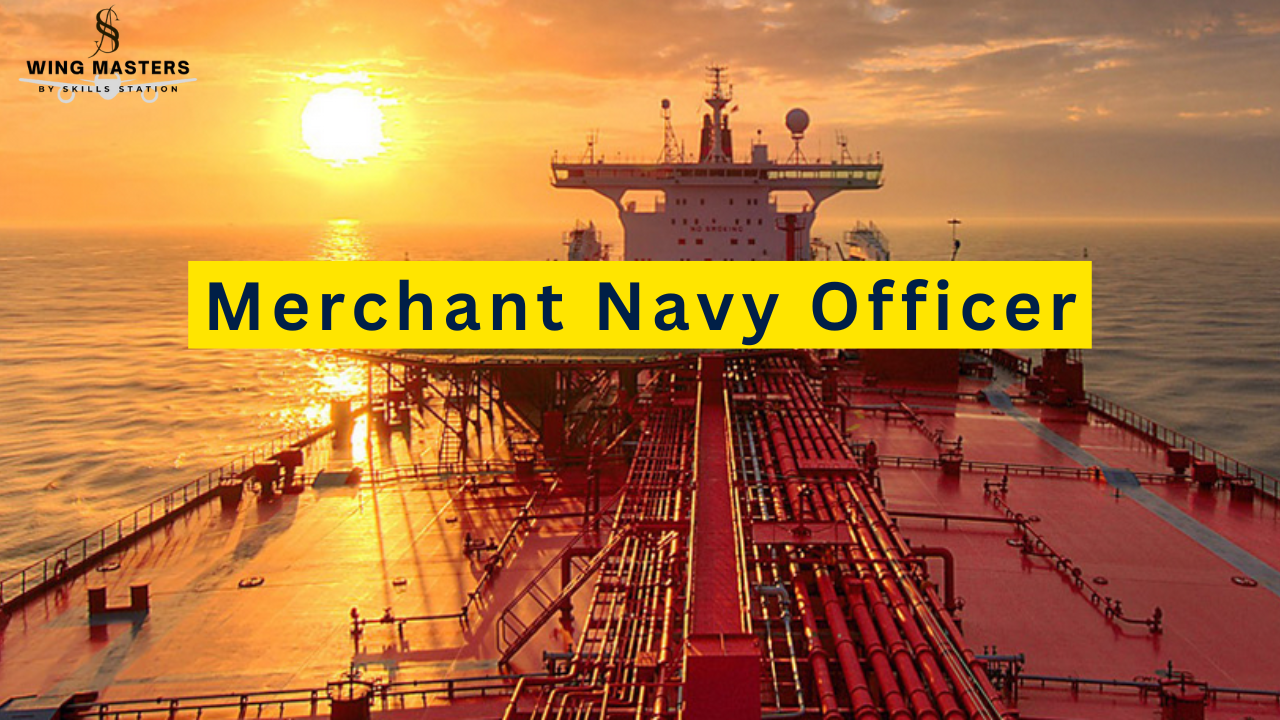
Embarking on a journey to become a merchant navy officer offers a unique blend of adventure, responsibility, and global exposure. This career path is not only prestigious but also demands dedication, discipline, and a passion for the sea. Understanding the nuances of this profession is crucial for aspirants aiming to make a mark in the maritime industry.
At SkillsStation, we are committed to guiding aspiring seafarers through every step of their journey. Our comprehensive training programs and experienced faculty ensure that candidates are well-prepared to meet the challenges and reap the rewards of a career in the merchant navy.
Understanding the Role of a Merchant Navy Officer
A merchant navy officer plays a pivotal role in the operation and management of commercial ships. Their responsibilities encompass navigation, cargo handling, maintenance, and ensuring the safety of the vessel and its crew. Officers are categorized into deck officers, engineering officers, and electro-technical officers, each specializing in different aspects of ship operations.
The path to becoming a merchant navy officer involves rigorous training, both theoretical and practical, to equip candidates with the necessary skills and knowledge. The profession demands a high level of commitment, adaptability, and resilience, given the challenging and dynamic nature of maritime operations.
How to Join the Merchant Navy
How to join merchant navy after 12th is a question asked by many students who are looking for a high-paying, adventurous career straight out of school. The merchant navy offers job opportunities both on and off ships, making it a desirable path for those who want global exposure, financial growth, and a unique lifestyle. Knowing the steps involved after the 12th is the first milestone in building this career.
1. Educational Qualifications:
To embark on a career as a merchant navy officer, candidates must have completed their 10+2 education with Physics, Chemistry, and Mathematics (PCM) as core subjects. A minimum aggregate score of 60% is typically required. For engineering roles, a degree in Mechanical or Marine Engineering is essential.
2. Entrance Examinations:
Prospective candidates must clear entrance exams such as the Indian Maritime University Common Entrance Test (IMU-CET) or the All India Merchant Navy Entrance Test (AIMNET). These assessments evaluate the candidate’s aptitude and readiness for maritime training programs.
3. Pre-Sea Training:
Upon clearing the entrance exams, candidates undergo pre-sea training programs like the Diploma in Nautical Science (DNS), General Purpose (GP) Rating, or Electro-Technical Officer (ETO) courses. These programs provide foundational knowledge and practical skills essential for life at sea.
4. Onboard Training:
After completing pre-sea training, cadets are required to gain sea-time experience, typically ranging from 6 to 18 months, depending on the course. This hands-on training is crucial for understanding real-world maritime operations.
5. Competency Examinations:
Post-sea-time, candidates must pass competency exams conducted by the Directorate General of Shipping. Successful completion of these exams qualifies them for officer roles aboard ships.
Merchant Navy Eligibility Criteria
The foundation of the Merchant Navy Eligibility Criteria begins with academic qualifications. Depending on the career path—whether it’s as a deck officer, marine engineer, or rating crew—educational standards differ slightly.
To ensure safety and efficiency in maritime operations, stringent eligibility criteria are in place:
Age Limit: Candidates should be between 17 to 25 years of age. Age relaxations may apply to certain categories.
Medical Fitness: Aspiring merchant navy officers must meet specific medical standards, including good eyesight (6/6 vision) and no color blindness. A medical examination by a Directorate General of Shipping-approved doctor is mandatory.
Physical Fitness: The profession demands physical endurance. Candidates should be physically fit to handle the rigors of life at sea.

Merchant Navy Advantages and Disadvantages
When it comes to Merchant Navy Advantages and Disadvantages, many aspirants focus primarily on the perks. And yes, there are several.
Advantages:
Lucrative Salary: Merchant navy officers often enjoy tax-free salaries, especially when serving on international routes.
Travel Opportunities: The profession offers the chance to visit various countries, and experience diverse cultures and environments.
Job Security: With the global shipping industry continually expanding, there is a consistent demand for skilled maritime professionals.
Extended Vacations: After contracts ranging from 4 to 6 months, officers typically receive extended leave periods, allowing ample time for rest and personal pursuits.
Disadvantages:
Prolonged Absence from Home: Extended periods at sea can strain personal relationships and lead to feelings of isolation.
Challenging Work Environment: Life at sea can be physically demanding, with long working hours and exposure to harsh weather conditions.
Limited Social Interaction: Being away from the mainland can limit social interactions and access to recreational activities.
Continuous Learning: The maritime industry requires officers to undergo regular training and certifications to stay updated with evolving technologies and regulations.
Career Progression for a Merchant Navy Officer
The maritime industry offers a clear and structured career progression path:
Cadet/Trainee: Entry-level position post pre-sea training.
Third Officer/Assistant Engineer: After completing sea-time and passing competency exams.
Second Officer/Second Engineer: With additional experience and certifications.
Chief Officer/Chief Engineer: Senior management roles onboard.
Captain/Marine Superintendent: Top-tier positions, overseeing entire ship operations or managing fleets from shore-based offices.
Each promotion is contingent upon experience, performance, and successful completion of requisite examinations.
Conclusion
Pursuing a career as a merchant navy officer is both challenging and rewarding. It offers unparalleled opportunities for personal and professional growth, financial stability, and global exposure. However, it’s essential to weigh the advantages against the challenges to make an informed decision.
For those aspiring to embark on this maritime journey, SkillsStation stands as a beacon of excellence. Recognized as the best navy academy in Dehradun, we are dedicated to molding proficient and resilient maritime professionals ready to navigate the vast oceans.
